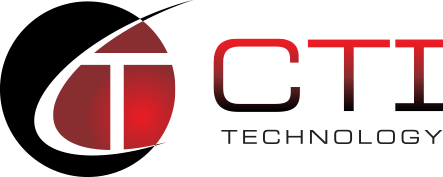Why Law Firms In Chicago Must Consider Cloud Servers: Enhancing Security and Efficiency
Chicago law firms must adapt to modern technology to stay competitive. Cloud servers offer unmatched flexibility, scalability, and security for legal practices. Moving to cloud computing can streamline operations, enhance collaboration, and improve overall efficiency.
Cloud servers eliminate the need for physical storage, reducing costs and freeing up office space. They enable real-time collaboration among attorneys and staff, making managing cases and communicating securely easier. This is especially important in a bustling city like Chicago, where legal professionals need quick and reliable access to information.
The advantages of adopting cloud servers are clear. From cost savings to improved collaboration and robust security, cloud computing is transforming legal practices in Chicago. Investing in cloud technology is not just a trend but a strategic move to future-proof your law firm.
Download our free information guide on cloud servers for your Chicago law firm
Key Takeaways
- Cloud servers provide flexibility, scalability, and security.
- They enable real-time collaboration and efficient case management.
- Adopting cloud technology can future-proof your law firm.
The Landscape of Chicago’s Legal Industry
Chicago’s legal industry is unique, with a unique blend of established law firms and innovative new practices. Firms face intense competition and must adopt new technologies to stay ahead.
Market Dynamics and Competitive Pressures
Chicago hosts many top-tier law firms, with 26 of the largest US-based firms having significant operations here. Due to growing business demands, these firms compete intensely for prime office space. Firms are expanding westward, breaking from traditional business districts to find more suitable locations (Breaking from Tradition).
The legal market in Chicago is diverse, with established giants and rising stars. Large law firms often dominate, influencing market trends and setting high standards for practice and client services. Yet, competition is steep, requiring firms to innovate and reposition themselves constantly. Amidst these pressures, smaller firms and newer players also find opportunities, contributing to a dynamic, evolving landscape.
Current Technological Adoption Among Law Firms
Law firms in Chicago increasingly recognize the importance of adopting current technologies. Many firms have started incorporating cloud servers and other tech advancements to optimize their operations. This shift helps them manage resources better and enhances their service delivery.
With the pressure to stay competitive, firms must use technology to streamline workflows and improve client communications. Firms with higher technological adoption are often more resilient and adaptive. Despite some resistance, the trend is clear: leveraging technology is no longer optional for success. This move towards tech-savvy operations also means rethinking everything from billable hours to client interactions to maintain profitability (State of the Legal Market).
Fundamentals of Cloud Computing
Cloud computing is increasingly vital for law firms due to its efficiency, scalability, and cost-effectiveness. Understanding its core elements is crucial for informed decision-making.
Definition and Types of Cloud Servers
Cloud computing refers to delivering computing services—like servers and storage—over the internet. This allows you to store and process data in remote data centers. There are three main types of cloud servers: public, private, and hybrid.
- Public Cloud: Services are provided by third-party providers over the public internet. They offer scalable resources at lower costs.
- Private Cloud: Exclusive to one organization, offering more control and security but at a higher cost.
- Hybrid Cloud: This combination of public and private clouds allows data and applications to be shared between them. It provides flexibility and cost-efficiency while maintaining security.
Understanding these types helps your firm choose the right cloud model tailored to your needs.
Comparison with Traditional On-Premise Solutions
Traditional on-premise solutions require significant investment in hardware, software, and maintenance. They also need space and a dedicated IT team for upkeep.
Key Differences:
- Cost: Cloud servers often have lower upfront costs and predictable monthly fees. In contrast, on-premise setups involve high initial investments and ongoing maintenance costs.
- Flexibility: Cloud solutions offer scalability. Unlike on-premise servers, you can easily adjust resources based on demand, which may require costly upgrades.
- Security: While on-premise solutions allow direct control, cloud providers offer robust security measures, including data encryption and regular updates.
By comparing these aspects, you can see why many law firms find cloud servers a more practical, efficient alternative.
Strategic Advantages of Cloud Servers for Law Firms
Adopting cloud servers in a law firm can enhance operational efficiency, support scalability, improve security, and reduce costs. Here are some key advantages to consider:
Scalability and Flexibility
Cloud servers allow law firms to scale resources up or down based on demand.
You can easily increase your storage and computing power during busy times, such as major cases or end-of-year audits.
This flexibility ensures that you are only paying for what you need, avoiding the limitations and expenses of physical servers. It also allows your firm to stay agile and responsive to changing needs, improving client service and operational management.
Cost-Effectiveness and ROI
Implementing cloud servers can result in significant cost savings.
Without physical infrastructure, your law firm can reduce maintenance and hardware costs.
Cloud services often operate on a subscription basis, allowing for predictable monthly expenses that fit within your budget. This model also helps reduce upfront investment, delivering a better return on investment (ROI).
Business Continuity and Disaster Recovery
Cloud servers enhance business continuity by providing robust disaster recovery solutions.
Data stored in the cloud is regularly backed up and can be quickly restored if issues arise.
This ensures that your firm’s critical information is safe and accessible at all times. Additionally, cloud providers offer high levels of data security and redundancy, minimizing disruptions and helping maintain consistent operations.
Such measures ensure that your firm can quickly recover from unforeseen events, safeguarding client trust and maintaining operational integrity.
Security Concerns and Compliance
Securing client data and ensuring compliance with legal and ethical standards are crucial. This includes protecting confidentiality, maintaining data integrity, and adhering to regulations.
Protecting Client Confidentiality
Protecting client confidentiality is essential when using cloud servers. Your clients’ sensitive information must remain secure. Choosing a reputable cloud service provider ensures that the data is encrypted in transit and at rest. Encryption safeguards information from unauthorized access.
It’s also important to control access to the data. Setting up strict access controls helps ensure that only authorized staff can view or modify client information, minimizing the risk of internal data breaches.
Regular audits and monitoring can detect any unusual activity or potential security risks. This proactive approach helps maintain the confidentiality of client data.
Ensuring Data Integrity and Availability
Data integrity ensures the information remains accurate and unchanged during storage or transfer. Cloud providers use advanced systems that help prevent data corruption and loss. Regular backups are needed to keep your data safe.
You also benefit from high availability when you store data in the cloud. This means your data is accessible when you need it. Cloud providers often have multiple data centers, ensuring your information is not lost if one center experiences issues.
Furthermore, cloud service providers often use technologies that guarantee data integrity, such as checksums and redundancy. These systems help maintain consistent and reliable data.
Compliance with Legal and Ethical Standards
Using cloud servers requires compliance with various legal and ethical standards. Law firms must ensure that their cloud services meet the legal requirements. This includes data protection regulations specific to your jurisdiction.
For example, in Chicago, it is important to follow state and federal data privacy laws. Cloud providers should offer compliance with standards like the General Data Protection Regulation (GDPR) and the Health Insurance Portability and Accountability Act (HIPAA).
Additionally, law firms have ethical obligations to maintain client confidentiality and data security. You can effectively meet these obligations by selecting a provider with robust security protocols and certifications.
Practical Considerations for Implementation
Implementing cloud servers in a law firm involves several vital steps to ensure smooth transition and operation. It is crucial to select a reliable cloud service provider, provide proper training for your legal staff, and address compatibility with existing systems.
Selecting the Right Cloud Service Provider
Choosing the right cloud service provider is crucial. Look for providers with strong security measures like end-to-end encryption and compliance with legal standards like GDPR. Evaluate their uptime guarantees to ensure minimal disruptions. Consider the scalability of their services to accommodate your firm’s growth.
Check for customer support availability. Clio highlights the importance of a responsive support team. Cost is also a factor; compare prices based on the features offered. Finally, read reviews and consult with other law firms for feedback on the various providers.
Training and Support for Legal Staff
Transitioning to a cloud-based system requires adequate training for all staff members. Conduct workshops and training sessions to familiarize your team with the new tools and processes. Continuous support is essential to address any issues that arise post-implementation.
Set up a dedicated helpdesk or support system within your firm. Encourage staff to share their experiences and tips. Thomson Reuters emphasizes that proper training increases efficiency and better adoption rates. Consider partnering with the cloud service provider for specialized training programs.
Migration and Integration with Existing Systems
Migrating to the cloud involves careful planning. Start by assessing which systems and data need to be moved. Develop a step-by-step migration plan that includes data backup to prevent any loss during the transition.
Ensure that the new system integrates well with your current software. Tools like cloud practice management software can help in managing this transition smoothly. LawPay suggests focusing on integration capabilities to minimize disruptions. Perform rigorous testing before entirely switching over to identify and fix any issues.
Case Studies and Success Stories
Chicago law firms have successfully transitioned to cloud servers, improving their efficiency and data security. The following examples highlight key benefits and best practices for leveraging cloud technology.
Local Law Firms Leveraging Cloud Servers
Several prominent law firms in Chicago have moved their operations to the cloud. For instance, one major firm significantly improved its data protection with redundancy and backup solutions. This ensures that sensitive legal documents are safe from potential data loss or breaches. Another firm focused on remote work capabilities, enabling their attorneys to access files and collaborate from anywhere. This shift enhanced productivity and client communication, maintaining a high level of service even during unforeseen events.
Additionally, financial and practice management areas have seen marked improvements. By adopting cloud-based technology, these firms have streamlined billing processes and case management, aligning with modern business practices. The benefits are clear; more firms follow this trend to maintain a competitive edge.
Lessons Learned and Best Practices
One crucial lesson from Chicago law firms is choosing the right cloud service provider. Firms that researched providers thoroughly found solutions that best met their needs and compliance requirements. Ensuring that the service offers robust security features is paramount. For example, built-in redundancy and multiple internet connections have proved vital for maintaining consistent access and protecting against failure.
Another best practice involves training staff on new systems. Firms that invested time in comprehensive training saw smoother transitions and greater efficiency. Additionally, establishing a clear migration plan with timelines and responsibilities helps prevent disruptions. By following these practices, law firms can maximize the benefits of moving to the cloud and ensure a successful transition.
Future Outlook
To remain competitive in the digital age, law firms in Chicago need to stay current with evolving technology trends and client expectations.
Evolving Technology Trends in Legal Services
The legal industry is witnessing rapid technological changes. Tools like artificial intelligence, machine learning, and advanced cloud computing are becoming essential. AI can automate tasks like document review and predictive analytics, making processes more efficient.
Cloud computing offers benefits like lower maintenance costs and more accessible data storage. With a cloud-based system, you can access files from anywhere, which enhances productivity. Tools that combine multiple functionalities streamline operations, reducing the need for various software packages. Law firms are increasingly adopting these technologies to keep up with the demands of modern legal practice.
Anticipating Changing Client Expectations
Clients today expect more from their legal service providers. They want fast, transparent, and secure interactions. Cloud-based services can help meet these expectations. Clients demand real-time updates on their cases, which cloud systems can efficiently provide.
Additionally, clients are more tech-savvy than ever. They expect their legal service providers to use the latest technology. To meet these expectations, law firms must invest in reliable cloud services. Ensuring data security and compliance with regulations is also critical. Reliable cloud providers offer robust security measures that can build trust with your clients.
Meeting these evolving demands can help your law firm stay ahead in a competitive landscape. Balancing technology adoption with client needs will be critical to future success.
Why Is CTI Technology The Best Choice For IT Services In The Chicagoland Region?















